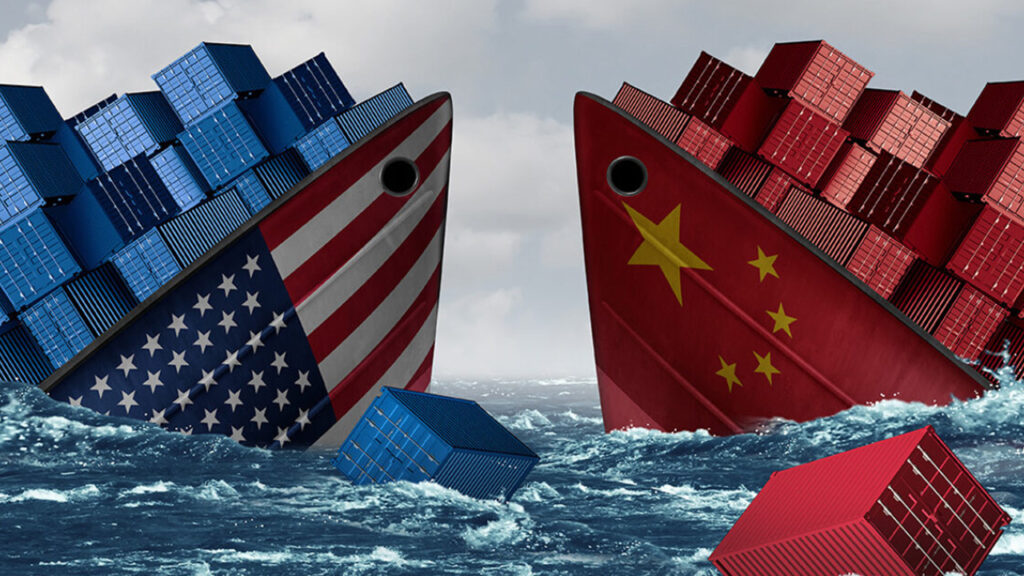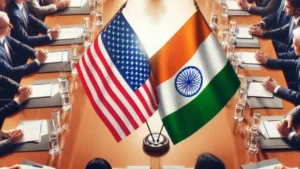Global Trade War Intensifies: Countries Brace for Economic Fallout

As the global economy continues to struggle with post-pandemic recovery, a new and increasingly volatile front has opened up in international relations: the intensification of the global trade war. What began as isolated tariff battles between major economic powers has now escalated into a full-fledged global trade conflict, with nations imposing tariffs, sanctions, and trade restrictions on each other in an attempt to gain an economic advantage. The intensification of this trade war is reverberating across industries, economies, and supply chains, raising questions about its long-term impact on the global market.
The U.S.-China Trade Tensions Resurface
The epicenter of the current global trade war remains the ongoing tension between the United States and China. Despite the trade truce signed during the early years of the Biden administration, relations between the two largest economies in the world have once again soured. The U.S. has accused China of unfair trade practices, intellectual property theft, and currency manipulation. In return, China has criticized U.S. tariffs on Chinese goods, claiming that these measures hurt not only China’s economy but also the global supply chain.
In recent months, the U.S. has imposed additional tariffs on key Chinese products, particularly in the technology and semiconductor sectors. These tariffs are aimed at slowing China’s rapid technological advancement and addressing the trade imbalance. In response, China has retaliated by placing tariffs on American agricultural goods, as well as advanced machinery and components that are crucial to American industries.
The situation is complicated further by geopolitical factors, including the U.S.’s push to counter China’s growing influence in the Indo-Pacific region. The trade war has become a proxy for larger power struggles, with both nations positioning themselves as global economic leaders. As these tensions continue to escalate, experts predict that both countries may face long-term economic consequences, including higher prices for consumers and disrupted global supply chains.
Europe Joins the Fray
While much of the media focus has been on the U.S.-China trade war, Europe has not remained untouched by the growing protectionist sentiment. The European Union (EU) has recently ramped up its own trade policies in response to U.S. tariffs on steel and aluminum, as well as the Trump-era trade war. In retaliation, the EU has imposed tariffs on American goods such as whiskey, jeans, and motorcycles. However, Europe is also facing growing pressure from within, with populist movements demanding more protectionist measures to shield local industries from foreign competition.
The EU’s trade approach has also shifted in recent years as it navigates the complexities of Brexit and seeks to redefine its global trade relationships. In particular, the EU has made moves to strengthen its trade partnerships with Asia, Latin America, and Africa, aiming to diversify its trade dependence away from traditional partners like the U.S. and China.
Developing Countries Feeling the Pressure
The global trade war is also having a profound effect on developing countries, many of which are caught in the crossfire between the world’s major economic powers. Countries in Africa, Southeast Asia, and Latin America have seen their export markets shrink as tariffs and trade barriers increase. In particular, agricultural and commodity-producing nations are finding it more difficult to compete in a market increasingly dominated by protectionist policies.
For instance, many countries in Africa that rely on exports to China, such as oil-rich nations and those dependent on mining, are seeing disruptions in their trade flows. Meanwhile, Latin American countries that have enjoyed tariff-free access to U.S. markets are now finding themselves subject to new barriers, which could hinder their economic growth prospects.
As global trade becomes more fragmented, developing countries are also facing a new set of challenges. Smaller economies, in particular, are finding it harder to maintain stable growth amid rising costs, reduced demand, and restricted access to global markets. In some cases, the trade war has also spurred inflation, leading to increased costs of living for populations already struggling with economic hardship.
Global Supply Chains in Peril
One of the most significant consequences of the intensifying global trade war is the disruption of global supply chains. Companies that rely on sourcing materials from different parts of the world are finding it increasingly difficult to navigate the complex web of tariffs, sanctions, and trade restrictions. This is particularly evident in industries such as technology, automotive, and pharmaceuticals, which rely on a globalized supply chain to source components from various countries.
In an effort to mitigate these risks, many companies are shifting their manufacturing operations to other countries, a trend known as “decoupling.” For example, some American companies have moved their production out of China to countries like Vietnam and India in response to tariffs. However, this comes with its own set of challenges, such as higher labor costs and difficulties in maintaining quality control.
The Road Ahead: A New World Trade Order?
As the global trade war intensifies, the world faces the prospect of a new economic order. The era of globalization, which saw international trade flourish under the principles of free market capitalism, is now under increasing pressure from protectionist policies. While this shift may provide short-term benefits for some countries, experts warn that it could have long-term negative consequences, including reduced global economic growth, increased inequality, and diminished international cooperation.
The outcome of the global trade war remains uncertain. If the tensions continue to escalate, countries may adopt even more extreme measures, including trade embargoes and more stringent tariffs. However, some analysts suggest that a period of multilateral diplomacy and trade negotiation may be the key to diffusing tensions and restoring stability to the global economy. Ultimately, the future of international trade will depend on how nations balance their economic interests with the need for cooperation in an increasingly interconnected world.
In the coming months, the global trade war is expected to be a central issue in diplomatic discussions, as leaders from all corners of the globe attempt to navigate the complexities of an ever-shifting economic landscape.



